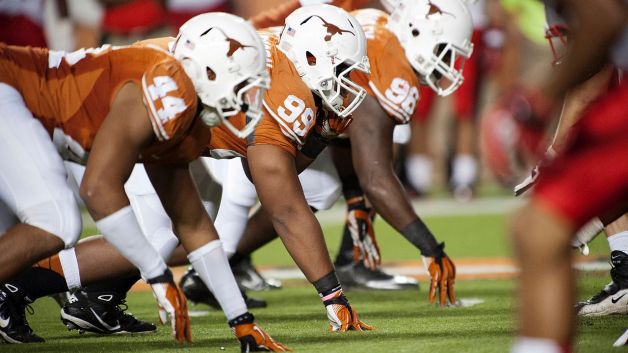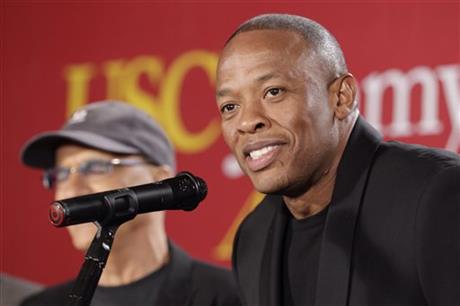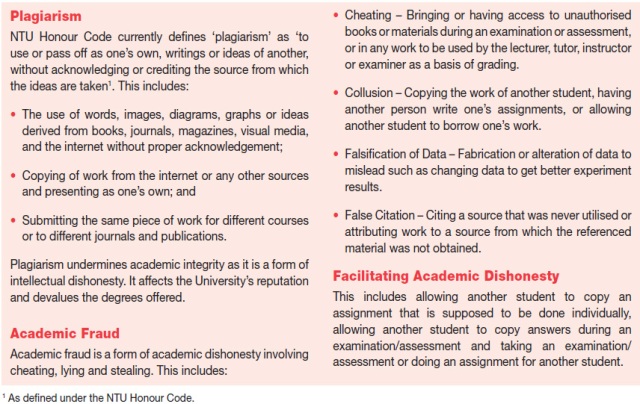 (Photo Credit: Black Entertainment Television)
(Photo Credit: Black Entertainment Television)
In “Diamonds in the Rough: Examining a Case of Successful Black Male Student Athletes in College Sport,” Bimper, Jr., Harrison, Jr. and Clark (2012) investigated the self-perceptions and behaviors that enabled 7 Black male student-athletes to experience academic and athletic success. A case study was used as the research method, and Critical Race Theory (CRT) was employed as the theoretical framework. From the findings in the study, the researchers concluded that helping Black male college student-athletes to evolve positive identities as student-athletes and the ability to experience rewarding academic achievement are crucial to their academic success. The findings of this study revolved around three core themes: complex identities, community, and liberation.
Bimper, Jr. et al. (2012) express that Black male student-athletes are being recruited to predominantly White institutions (PWIs) for their athletic abilities, but many of these student-athletes are experiencing tremendous difficulty with meeting their academic challenges. They note that recent graduation reports promulgated by the National Collegiate Athletic Association (NCAA) about 70 bowl-bound NCAA Division I football teams and NCAA Division I tournament-bound basketball teams reveal that the graduation rate of Black male student-athletes is significantly lower than their White counterparts. In conducting this study, the authors explain that they want to improve knowledge about the distinctive experiences of Black male student-athletes who have been both academically and athletically successful in high-profile revenue-generations sports at PWIs of higher education. The researchers also disclose that they concentrate their research on “the role in which race unfolds in the experiences and identity of Black male student athletes in this collegiate setting” (p. 108-109). They assert that great differences in academic achievement between Black male student-athletes and their White counterparts indicate that issues associated with culture, identity, and social relationships could be important to the academic achievement of student-athletes.
Moreover, Bimper, Jr. et al. (2012) explain how pernicious racial stereotypes lead to decreases in Black male college student-athletes’ academic achievement. Although all student-athletes have to combat “the dumb jock” stereotype, this stereotype becomes even more problematic for Black male student-athletes, considering they academically underperform all of their peers. The researchers inform the reader that Black male student-athletes have to fight serious pressure to construct a strong athletic identity before they are given the proper space to develop a constructive academic identity. The authors discussed how Black male student-athletes who participate in high-profile sports experience a level of alienation far greater than that of the general Black student population.
The lead researcher in this study is a Black male and former student-athlete who participated in multiple revenue-generating college sports. The lead researcher also has experience working with diverse student-athletes. To ensure trustworthiness, the lead researcher maintained “transparent memos and notes throughout the data collection and analysis, member checked data transcriptions, and collaborated in a peer review process to check biases and discern the accuracy of findings” (Bimper, Jr., et al., 2012, p. 112).
The participants in this study are 7 Black male student-athletes who attend a southwestern PWI on a full athletic scholarship. The classification of these student-athletes range from sophomore to graduate student: 1 sophomore, 3 juniors, 2 seniors, and 1 graduate student. The graduate student finished his undergraduate degree in 3 years and had completed work toward a master’s degree when the study was conducted. Only one of the participants came from a two-parent home. All of these Black male student-athletes came from low-income homes, and they all attended public K-12 schools prior to enrolling in college. A purposeful sampling strategy was employed to recruit them for this study. Specifically, criterion sampling was used to recruit them. Bimper, Jr. and colleagues (2012) make clear that the reason why Black male college student-athletes at PWIs were sought after is these institutions have proved in the professional literature to be sites where Black male student-athletes experience the lowest academic achievement. To be selected to participate in this study, the student-athlete would have to have made valuable athletic contributions to the team and be first or second on the depth chart. Additionally, the student-athlete had to have at least a 3.0 GPA or received some academic award by the institution, NCAA or the athletic department.
The main method of data collection was semi-structured individual and focus group interviews. The initial questions asked during the individual and focus group interviews are as follows: “(a) ‘Will you describe your experience as a student athlete at your university?’ (b) ‘How have your experiences as a student athlete influenced your perception of self?’ (c) ‘What do you think contributes to your success as a student athlete?’” (Bimper, Jr., 2012, p. 114).
As mentioned previously, three dominant themes emerged from the data collected: complex identities, community and liberation. The dominant finding that pertains to the complex identities theme is the student-athletes contended that their identity as Black male student-athletes played an instrumental role in their lives, and they provided a counter-narrative to the prevalent thought of them being only athletes. All participants were proud to identify themselves as being Black and were conscious of their peers and instructors’ perceptions of their racial identity. Most of the student-athletes posited that toxic stereotypes about being Black and being an athlete are concatenated. All participants articulated that Black male student-athletes have to confront challenges associated with their athletic and racial identity.
The community theme refers to the participants communicating their ability to “engage a supportive community” that is critical to their academic and athletic success. One of the participants explained that too many of his teammates attempt to perform well academically on their own, but they struggle mightily. For this participant, he did not find the language of the recruiters that he would be coming to a “family” environment to be true. These student-athletes contend that it was their ability to find a supportive community within the institution and use the available resources offered by the institution and athletic department, especially the academic center in the athletic department, that greatly contributed to their academic success. Some participants felt that the athletic department created a culture where they expected their student-athletes to graduate, but others believed that there was not a true commitment to their degree completion. All, save one, participants were linked with tutors to work with outside of the athletic department. The student-athletes found that networking was essential to their academic success, especially networking with Black professors on campus. In their opinion, one of the fundamental reasons why many Black male student-athletes struggle academically is they fail to network with others on campus, especially Black professors. These student-athletes communicated that they were able to overcome the pre-college expectations for them to come to college to simply try to become professional athletes.
Moreover, the theme of liberation that surfaced throughout the study refers to the participants becoming “self-empowered through education” (Bimper, Jr., 2012, p. 122). The participants believe that it’s more important for them to be successful academically than athletically. It is there hope that they can change perceptions about Black male student-athletes’ intellect by excelling academically. They were deeply bothered about the negative perceptions on campus about their intellectual capabilities as student-athletes, especially as Black male student-athletes.
One disappointing aspect of this study is it does not offer any understanding of the academic preparation the student-athletes had prior to coming to college. This study did not provide any understanding about where the participants’ strong self-determination emerged, and what helped them to not fall prey to simply coming to college to try to become professional athletes. While this study has great potential for helping scholars to understand how to ameliorate the academic achievement of Black male student-athletes at PWIs, its failure to give insights into the pre-college academic and social preparation of the participants leaves many issues and questions unresolved. Although it does explain that all of the student-athletes come from low-income homes, the reader is left without any understanding of how well the students performed academically in their K-12 experience. It would have been helpful to learn more about their pre-college social lives and experiences. Simply learning that the student-athletes come from low-income homes is not sufficient enough to provide essential background information about the pre-college factors that facilitate and militate against their college academic achievement.
The Black male student-athletes provided valuable insights about how important networking, especially with Black professors, was to their academic success. It would have been helpful to learn specifically what those Black professors provided for them. Future research should devote critical attention to how networking can aid in the academic success of Black male student-athletes and what can be done to mitigate barriers to Black male student-athletes being able to engage in networking. Scholars need to investigate why many Black male student-athletes are not currently engaging in networking on-campus and off-campus. The study offers promising insights about how academic support centers in athletic departments should adopt a culturally relevant pedagogical framework. The study does not, however, give specific recommendations for accomplishing this. Future research should provide specific recommendations for establishing a culturally relevant pedagogical framework in academic support centers in athletic departments, and examine the specific academic and social outcomes that result from implementing a culturally relevant pedagogical framework in these academic support centers in athletic departments.
Reference
Bimper, Jr. A.Y., Harrison, Jr., L., & Clark, L. (2012). Diamonds in the rough: Examining a case of successful Black male student athletes in college sport. Journal of Black Psychology, 39(2), 107-130.
Antonio Maurice Daniels
University of Wisconsin-Madison
Related Articles
- Guest: Racial disparity in graduation rates on NCAA basketball teams (seattletimes.com)
- Steve Spurrier credits black athletes with boosting SEC to dominance (sacbee.com)
- The Dr. Vibe Show™: Isiah Thomas – Black Males, Athletes and Academic Achievement (thedrvibeshow.com)
- ‘Dumb Jock’ Stereotype Threat Is Self-Reinforcing, Unless Coaches Expect More of College Athletes (medicaldaily.com)








